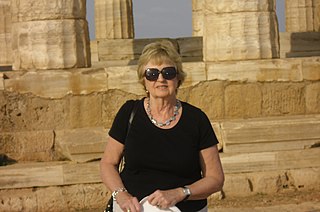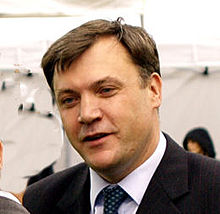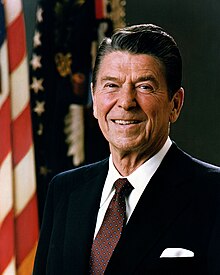
Jesus College is one of the constituent colleges of the University of Oxford in England. It is in the centre of the city, on a site between Turl Street, Ship Street, Cornmarket Street and Market Street. The college was founded by Elizabeth I on 27 June 1571 for the education of clergy, though students now study a broad range of secular subjects. A major driving force behind the establishment of the college was Hugh Price, a churchman from Brecon in Wales. The oldest buildings, in the first quadrangle, date from the 16th and early 17th centuries; a second quadrangle was added between about 1640 and about 1713, and a third quadrangle was built in about 1906. Further accommodation was built on the main site to mark the 400th anniversary of the college, in 1971, and student flats have been constructed at sites in north and east Oxford.

Keble College is one of the constituent colleges of the University of Oxford in England. Its main buildings are on Parks Road, opposite the University Museum and the University Parks. The college is bordered to the north by Keble Road, to the south by Museum Road, and to the west by Blackhall Road.

Sir Ivor Anthony Roberts is a retired British diplomat and the former President of Trinity College, Oxford. He was previously British Ambassador to Yugoslavia, Ireland, and Italy. He was knighted in 2000. In addition to his British citizenship, he is now an Irish citizen.
Honorary titles in academia may be conferred on persons in recognition of contributions by a non-employee or by an employee beyond regular duties. This practice primarily exists in the UK and Germany, as well as in many of the universities and colleges of the United States, Australia, Hong Kong, Taiwan, China, New Zealand, Japan, Denmark, and Canada.

The position of Savilian Professor of Astronomy was established at the University of Oxford in 1619. It was founded by Sir Henry Savile, a mathematician and classical scholar who was Warden of Merton College, Oxford, and Provost of Eton College. He appointed John Bainbridge as the first professor, who took up his duties in 1620 or 1621.

Dame Averil Millicent Cameron, often cited as A. M. Cameron, is a British historian. She was Professor of Late Antique and Byzantine History at the University of Oxford, and the Warden of Keble College, Oxford, between 1994 and 2010.

William Spencer Barrett FBA, usually credited as W. S. Barrett and known as Spencer Barrett, was an English classical scholar, Fellow and Sub-Warden of Keble College, Oxford, and Reader in Greek Literature in the University of Oxford. He was also a Fellow of the British Academy.

Sir Christopher Martin Dobson was a British chemist, who was the John Humphrey Plummer Professor of Chemical and Structural Biology in the Department of Chemistry at the University of Cambridge, and Master of St John's College, Cambridge.
Sir Christopher John Elinger Ball is a British academic, who served as Warden of Keble College, Oxford, from 1980 to 1988, and as the first Chancellor of the University of Derby, from 1995 to 2003.
Walter Lock (1846–1933) was an English Anglican priest and theologian, who served as Warden of Keble College, Oxford, from 1897 to 1920.
Cecil Vere Davidge of Little Houghton House DL was a British lawyer and academic, who served as a Fellow and bursar of Keble College, Oxford, and as High Sheriff of Northamptonshire.
Dennis Eric Nineham was a British theologian and academic, who served as Warden of Keble College, Oxford, from 1969 to 1979, as well as holding chairs in theology at the universities of London, Cambridge, and Bristol.

The position of Laudian Professor of Arabic, now known as the Abdulaziz Saud AlBabtain Laudian Professor, at the University of Oxford was established in 1636 by William Laud, who at the time was Chancellor of the University of Oxford and Archbishop of Canterbury. The first professor was Edward Pococke, who was working as a chaplain in Aleppo in what is now Syria when Laud asked him to return to Oxford to take up the position. Laud's regulations for the professorship required lectures on Arabic grammar and literature to be delivered weekly during university vacations and Lent. He also provided that the professor's lectures were to be attended by all medical students and Bachelors of Arts at the university, although this seems not to have happened since Pococke had few students, despite the provision for non-attenders to be fined. In 1881, a university statute repealed Laud's regulations and provided that the professor was to lecture in "the Arabic, Syriac, and Chaldee Languages", and attached the professorship to a fellowship at St John's College.

The position of Marshal Foch Professor of French Literature at the University of Oxford was founded in 1918 shortly after the end of the First World War. Ferdinand Foch, or "Marshal Foch", was supreme commander of Allied forces from April 1918 onwards. The chair was endowed by an arms trader, Basil Zaharoff, in Foch's honour; he also endowed a post in English Literature at the University of Paris in honour of the British Field Marshal Earl Haig. Zaharoff wanted the University of Paris to have a right of veto over the appointment, but Oxford would not accept this. The compromise reached was that Paris should have a representative on the appointing committee. In advance of the first election, Stéphen Pichon unsuccessfully attempted to influence the decision. The first professor, Gustave Rudler, was appointed in 1920. As of 2015, the chair is held by Catriona Seth. The position is held in conjunction with a Fellowship of All Souls College.

The position of Savilian Professor of Geometry was established at the University of Oxford in 1619. It was founded by Sir Henry Savile, a mathematician and classical scholar who was Warden of Merton College, Oxford, and Provost of Eton College, reacting to what has been described by one 20th-century mathematician as "the wretched state of mathematical studies in England" at that time. He appointed Henry Briggs as the first professor. Edward Titchmarsh said when applying that he was not prepared to lecture on geometry, and the requirement was removed from the duties of the post to enable his appointment, although the title of the chair was not changed. The two Savilian chairs have been linked with professorial fellowships at New College, Oxford, since the late 19th century. Before then, for over 175 years until the middle of the 19th century, the geometry professors had an official residence adjoining the college in New College Lane.
Sir Jonathan Phillips, is a retired British civil servant who served as Warden of Keble College, Oxford from 2010 to 2022.
Ian B. Phillips is a British philosopher and Bloomberg Distinguished Professor of Philosophy and Psychological and Brain Sciences at the Johns Hopkins University, where he has taught since 2019. He has appointments in the William H. Miller III Department of Philosophy and the Department of Psychological and Brain Sciences in the Zanvyl Krieger School of Arts and Sciences. He is known for his works on the intersection of philosophy and brain science.














